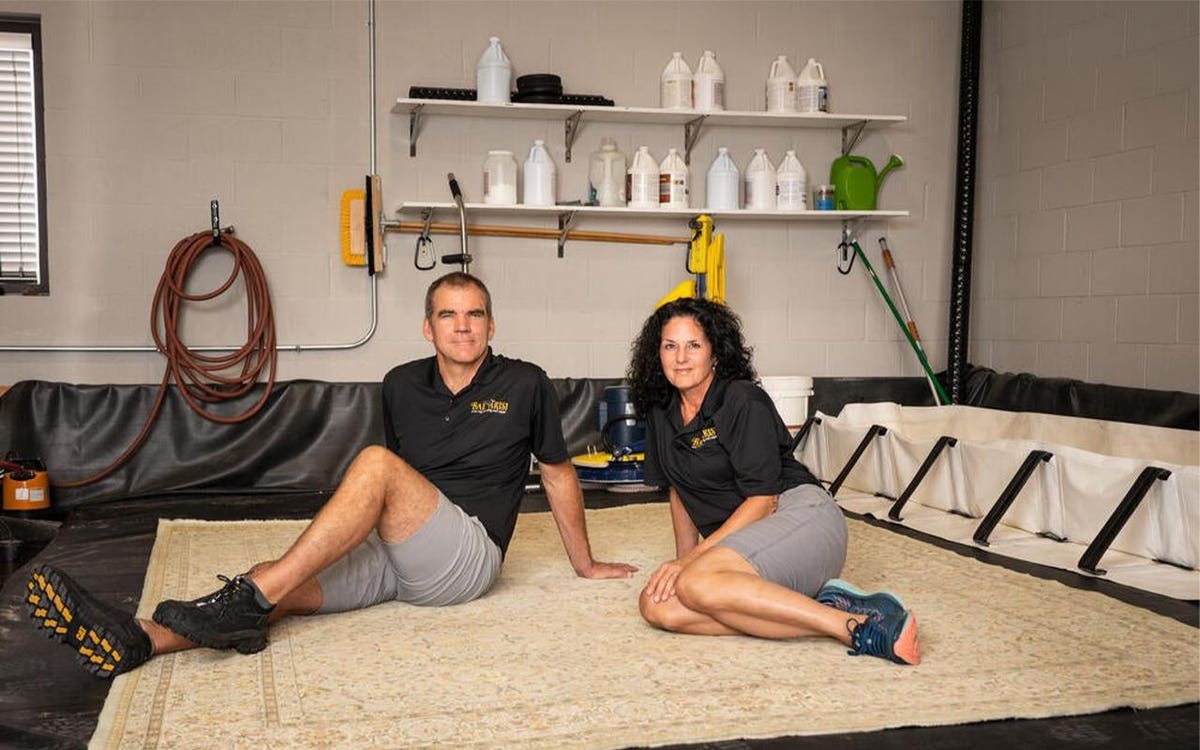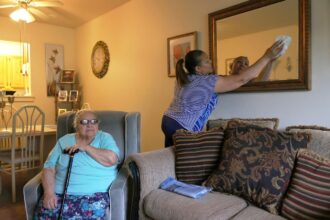By Mark A. Stein, Next Avenue
Theresa McCartin was looking forward to the new year. She had left a steady corporate job and was eager to start her own business cleaning and restoring expensive Oriental and Persian rugs. She called her startup Bal Arisi, Turkish for honeybee.
Bal Arisi opened for business on January 3, 2020. In March, McCartin shut it down — not because it was failing but because she didn’t like the prospect of spending hours in clients’ homes when the COVID-19 pandemic was killing hundreds of Americans every day.
“First of all, I don’t want to get sick. We’re both in our 50s, so it was no joke,” she said of herself and her husband Brian, who owns a conventional carpet-cleaning business, also in Warwick, Pennsylvania. “I also didn’t want to spread it to a lot of older people, who are the clientele we deal with when we talk about oriental rugs.”
For a month, McCartin did nothing but worry and regret having left her job in the marketing department of a health care company. “I was really panicking,” she recalled. “I was thinking ‘I need to go find another job . . . I’m not built for this. I need the security of a job.’ “
Her husband, who has owned his company for decades, counseled patience. “He is more conditioned to the ups and downs of owning your own business,” Theresa said. “Although he’s never lived through that kind of thing before, he was like, ‘We have no choice but to ride this out.'”
The McCartins put a notice on the Bal Arisi website offering to pick up rugs from customers’ porches and clean and restore them at a commercial space housing Brian’s business, McCartin Services. “We tried to cobble together some kind of income doing it that way, but it was really a struggle,” she said. “Money trickled in. It wasn’t substantial enough, it wasn’t sustainable. So we really, really worried.”
To fill her unwanted free time and sharpen her business skills, McCartin began watching “many, many” online classes about topics such as digital marketing, business planning and anything else she thought would help her to revive her startup if given the chance.
The classes she found online were helpful, but the volume was overwhelming. “I have a whole binder of ideas, information, spreadsheets and blah, blah, blah,” she recalled. “It was like, ‘I have all this but how do I put it into action?'” She decided she needed a mentor — an adviser or coach to help her find her way.
SCORE, a network of volunteer business managers and retired executives, introduced McCartin to several potential mentors before she found a match. Her choice, Karen Kelly, had been a manager at large companies and chair of industry groups but McCartin said she felt comfortable around her.
Finding a ‘Perfect’ Mentor
“She was perfect,” McCartin said. “She was super smart. She was laser focused. This was what I was looking for.”
Like most good mentors, Kelly helped her mentee work out answers to her questions rather just tell her what to do. “She helped me organize my ideas,” McCartin said. “She gave me templates that helped me take the information I had gleaned from the webinars and my background and put it into a program for me to help myself.”
She also informed McCartin about financial aid that nonprofit organizations and government bodies were offering small businesses to help them weather the economic impact of quarantines. “We did get a business grant, which I probably wouldn’t have known about or even known to look for on Google” without Kelly’s help, McCartin said.
Kelly, who called McCartin “a remarkable person” with “outstanding” dedication to building her business, helped her mentee maximize her value to her new enterprise by concentrating on creative work, at which she excelled, and delegating tasks she was not as good at or as interested in.
“She was very good at getting me out of the minutiae of what I thought I had to worry about,” McCartin recalled. “She would pull me out of something and say, ‘There are resources that can do this work for you, and here’s where you might look to find those resources.'”
Kelly would then tell McCartin about, say, bookkeepers who work by the hour or by the project.
Lifting the Burden
“She was great at taking some of the burden off of me, because when you are self-employed, you are everything, right?” she added. “You’re the bookkeeper, you’re the marketer, you’re the accountant — but not all those things speak to your strengths. You need somebody else to do things that take way too much of your time because you are not good at them.”
McCartin said digital chores like raising her presence on Google, which is vital to small businesses, was probably where she needed the most help. Kelly was no expert in that field, so she called in other SCORE volunteers to help. “It was like I had a team and it was great,” McCartin said.
As pandemic fears began to fade, Kelly encouraged her mentee to shift and think more about the future — “you know, what I needed to do once things got back to normal,” McCartin said. That included adding services (such as cleaning and storing patio furniture) and expanding beyond central Bucks County.
Things are bouncing back. Brian’s business, McCartin Services, is doing better than before the pandemic. Bel Arisi does not have enough of a track record to say as much, but its founder said it is meeting her goals.
“But we’re nowhere near being able to offer full-time employment, which is really, really where I want to be,” Theresa McCartin said. “Because I want to create jobs for people . . . but I also don’t want to do this really arduous labor forever! I’m 55!”
Read the full article here










